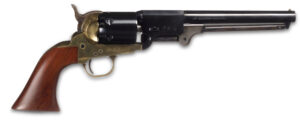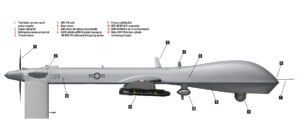In the confusion of the missile attack, I committed a rookie error—common enough among young lieutenants thrust into challenging leadership situations, but still inexcusable. Thinking more about the next steps for my unit, and not enough about my personal needs, I neglected to drink sufficient water. Becoming severely dehydrated, I developed a high fever. At the troop medical center, I was immediately given three IVs and medication. As I lay there, another Scud attack occurred. The medic at the makeshift hospital put my gas mask on me and moved my elevated stretcher to the floor. Instead of attempting to put my flak vest over my chest, the 250-pound sergeant bravely stretched across my body to keep debris from hitting me. There I was with IVs in my arm and a fever, hopelessly separated from my unit, with a rather large sergeant lying on top of me. If not for the distinct possibility of a Scud hitting the camp, the comedy of the situation would have overtaken me. It was the worst day of my life and the war had just begun for me. This was not exactly the “guns blazing” image that I had wanted to project.
Fortunately, later that night I found my unit in a parking lot at Wolf awaiting transportation to the larger staging base called Camp Virginia. The government-contracted Kuwaiti driver who was leading our convoy of 13 buses lost his way. The situation worsened when one of the buses broke down. After finally arriving at Camp Virginia late that night, I wandered around searching for the logistics center in order to find out where our unit was to be billeted. I was told at the center that we were at the wrong camp; we were supposed to be at Camp Udari about 20 miles farther north. The higher-ups finally made some concessions, found extra space, and allowed us to stay at Virginia.
We bedded down at 3 a.m. Just 24 hours after leaving our safe Bavarian home station, we were poised to begin our attack into Iraq. Our mission was to follow the 3rd Infantry Division up the western route to Baghdad—the so-called left hook—and intercept incoming enemy missiles in flight before they reached our troops. Whatever lay in our future, the first day had been a true crucible for us. As I closed my eyes, I couldn’t help but think that it was an inauspicious start by any standard.
As the heat crept into our tents early the next morning, we awoke and headed to the port to collect our missile launchers, radars, and trucks. We would not be defenseless for the next attack. Massive amounts of American firepower poured off the ships and into the Kuwaiti desert. Convoys stretching for miles snaked from the port to the many staging bases that dotted the sandy plains.
The sand wreaked havoc on our trucks, requiring extra attention. For several days we worked late into the night making the final preparations to the launchers, cleaning weapons, and filling sandbags. We loaded sandbags onto the floorboards of our trucks to protect ourselves from roadside bombs. We even positioned a row of sandbags at the base of the windshield to deflect potential back blast. Finally, we put shiny black infrared squares on our uniforms and trucks to identify us as a friendly unit to coalition aviation.
On the morning of our assault into Iraq, we awoke early after a hot and restless night. It was April Fools’ Day, but there was nothing jocular about the impending movement. We had outlined the route using a walk-through sand table and a large mosaic map pieced together from 30 smaller sectional maps of Iraq. We constructed the map board out of old cardboard water boxes and propped it up against tent poles. The 400-mile attack route was plotted in yellow—across the line of departure (the Iraqi border), past Nasiriyah and Samawah, to just south of Najaf.
We left Camp Virginia in a swirl of dust, nearly 200 vehicles and 700 soldiers. Oppressive heat from the Kuwaiti sun beat down on us. As we moved closer to the Iraqi border, we passed Camp Udari and saw the Stars and Stripes flying high against the desert backdrop. The majority of the convoy stopped for the night in the final staging area just south of the border. My vehicle, however, was not that lucky.
Just as we entered the demilitarized zone that night, our vehicle careened off the side of the road and into the sand. The driver lost control and we heard loud banging sounds like gunfire. We immediately jumped out and secured our perimeter. Lying prone in the dark while waiting for help in a hostile area is a maturing experience if ever there was one. After several minutes that seemed like eternity, we took stock of our situation and noticed the back of our truck was damaged. Realizing that the drive shaft was broken, it became clear what had caused the “gunfire”—the drive shaft had been bouncing off the ground and hitting the bottom of the vehicle. We weren’t being shot at, we had just broken down! We pulled security until the motor sergeant arrived to fix the vehicle. When our truck finally arrived at CSA (convoy support area) Navstar on the Iraqi border, we received a sarcastic welcome from the unit.
[continued on next page]




